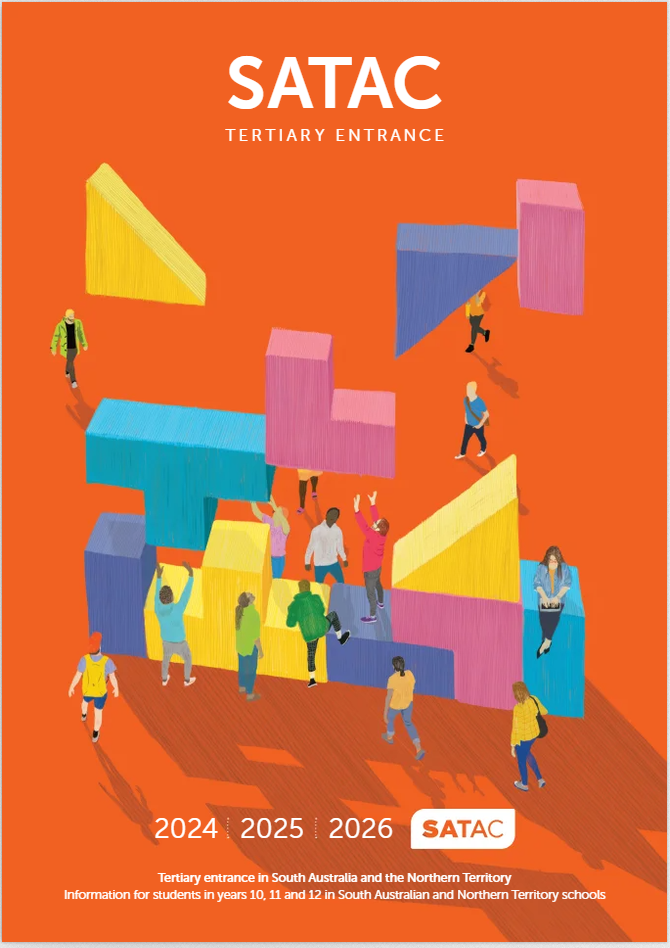Curriculum Guides | Stage 2 Curriculum Guide
Stage 2 Curriculum Guide
For Year 11 students entering Year 12
Table of contents
- Senior Years Curriculum
- Process for Subject Selection
- SACE Overview
- Introduction to the SACE
- Vocational Education and Training (VET)
- English (Global Perspectives) Pathways
- HASS (Global Perspectives) Pathways
- Language (Global Perspectives) Pathways
- Lifestyle Choices Pathways
- The Arts Pathways
- Technologies (STEM) Pathways
- Maths (STEM) Pathways
- Science (STEM) Pathways
- Futures Ready
- Further Information
Senior Years Curriculum
This guide describes the learning offered for Year 12 students at Adelaide Botanic High School in 2024 as they move into SACE Stage 2 (South Australian Certificate of Education) and beyond.
They will be supported to become familiar with the range of post-school learning options and develop self-directed learning skills.
We expect students to explore learning choices that give them every opportunity to achieve success for their dreams and goals.
Alistair Brown
Principal

Process for Subject Selection
Term 3 Subject Selection Milestones
| WEEK 4 | 2024 Curriculum Guide is released online |
| Studio One and Connect: Subject selection focus and preparing for Learning Pathway Conversations | |
| Student Pathways Expo - Adelaide Convention Centre Wednesday, 16 August. Year 11 students can attend the expo on their own or with their families. For families, the Careers Expo is open to the public Wednesday, 16 August from 4.00pm - 7.00pm. | |
| WEEK 5 | Studio One: Subject selection focus and preparing for Learning Pathway Conversations |
| WEEK 6 | Online subject selection opens in Web Preferences |
| Studio One: Subject selection focus and preparing for Learning Pathway Conversations | |
| WEEK 7 | Thursday, 7 September - Learning Pathway Conversations - face to face during the day |
SACE Overview


Introduction to the SACE
The SACE is a modern, internationally-recognised secondary school qualification designed to equip students with the skills, knowledge, and personal capabilities to successfully participate in our fast-paced global society.
Students will be awarded the SACE when they successfully complete requirements that include a range of skills and subjects they may study at school or may have acquired through other education, training or experience.
The SACE has been updated and strengthened to ensure it meets the needs of today’s young people. The SACE will help students develop the skills and knowledge they need to succeed – whether they are headed for further education and training, university, an apprenticeship or straight into the workforce.
As part of the SACE students will be expected to gain and demonstrate essential skills and knowledge for their future, focusing on communication, citizenship, personal development, work and learning. These are called ‘capabilities’, and are a combination of the skills, knowledge, and attributes students will need to be responsible and active members of the community.
SACE Requirements
At ABHS, students start their SACE journey with Exploring Identities and Futures (EIF) in Year 10, their selection of Stage 1 subjects in Year 11 including the compulsory Maths and English choices, Research Project/Activating Identities and Futures (AIF), and their selection of Stage 2 subjects in Year 12 (including recognised courses).
Modified SACE
Students with learning difficulties or disability, that result in significant impairment in intellectual functioning and/or adaptive behaviours, and who are unable to meet Stage 1 or 2 subject learning requirements in one or more mainstream SACE subjects, may negotiate to undertake Modified SACE subjects.
Students will select subjects from the subject offerings at Adelaide Botanic High School and negotiate individual learning goals aligned with their One Plan Goals, which accommodate their learning needs and interests, and which allow them to develop knowledge and skills connected to their aspirations and pathways beyond school.
Adelaide Botanic High School Inclusion and SACE Leaders will work with families considering a Modified SACE Pathway to ensure eligibility requirements are met.
Subjects undertaken as a Modified version as part of SACE completion precludes an ATAR being gained.
SACE Special Provisions
Special provisions are available if a student has a disability, illness, experiences misadventure, or an unforeseen circumstance which significantly impacts their ability to participate in an assessment.
If a student applies for special provisions they need to provide evidence of how this impacts their ability to access assessment conditions. After checking for special provisions eligibility, students can apply through ABHS. In consultation with the student and based on evidence provided, the school will determine what type of reasonable adjustments are appropriate. On approval, reasonable adjustments are made.
Further information is available at SACE special provisions.
Further information
Further information is available on the SACE website, which is designed to support students and families.
We encourage students to talk with their teachers and the Leadership team about their study options.

